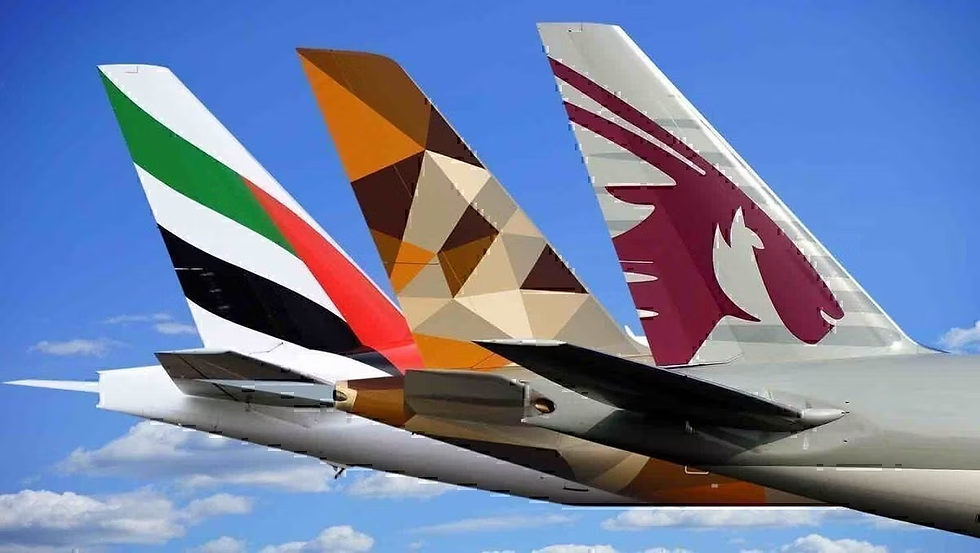Malaysia, with its strategic location and vibrant tourism industry, deserves more than one full-service airline.
While Malaysia Airlines (MAS) has been the flag bearer, its monopoly in the premium market has led to complacency and a lack of innovation.
This article delves into why a new competitor in Malaysia's full-service airline industry is necessary and explores the potential benefits and challenges of such an idea.
Malaysia Airlines: The Lone Full-Service Carrier
Malaysia Airlines is currently the only significant full-service airline in Malaysia. While it has shown improvement over the years, it faces little to no competition within the country, particularly in the premium market.
Other airlines, such as Batik Air Malaysia (formerly Malindo Air) and AirAsia, operate as low-cost carriers and do not directly compete with MAS in the premium segment.
Regional Competition
Regionally, MAS competes with airlines like Thai Airways and Singapore Airlines, both renowned for their superior service and extensive networks.
These airlines attract a substantial number of premium travelers from Malaysia, especially for regional routes.
For long-haul travel, MAS faces stiff competition from Middle Eastern carriers such as Emirates, Qatar Airways, and Etihad Airways, all known for their luxurious offerings and competitive prices.
The Need for Competition
With no direct competition in the premium segment within Malaysia, MAS has little incentive to innovate or enhance its services.
Recently, there have been complaints about lackluster cabins, dated aircraft, subpar food and beverage offerings, and inadequate lounge services. Such issues suggest a growing complacency within the airline.
Introducing another full-service airline would push MAS to improve its offerings to retain its market share. Competition typically leads to better services, more innovation, and enhanced customer satisfaction, benefiting travelers.
A new full-service airline with a distinct Malaysian identity could elevate the country's aviation industry. It would provide more choices for travelers, potentially attract more tourists, and create jobs. Moreover, countries like Taiwan have shown that having multiple premium airlines can be successful.
Taiwan boasts EVA Air, China Airlines, and the newly launched Starlux Airlines, all thriving in a competitive environment.
A new airline could focus on high-demand routes, especially to Australia and North Asia (South Korea and Japan), where there is significant travel interest from Malaysia. MAS flights to these regions are currently popular, indicating a strong market that could support another premium carrier.
A Malaysian conglomerate, such as the Berjaya Group, could be well-positioned to launch and support a new airline. With substantial resources and a diverse business portfolio, such a conglomerate could navigate the financial and operational challenges of establishing a new full-service airline.
Challenges to Consider
Launching a new full-service airline is capital-intensive, especially with the weak Malaysian ringgit. The cost of acquiring aircraft, setting up infrastructure, and meeting operational expenses could be prohibitive. Additionally, the aviation industry is highly competitive, and profitability is not guaranteed.
The Malaysian government has a vested interest in ensuring the success of MAS, and it might not support the introduction of a direct competitor. Regulatory hurdles could pose significant challenges to the establishment of a new airline.
Given that MAS is part of the oneworld alliance and its closest competitors in the region are in the Star Alliance, a new Malaysian airline would likely need to join the SkyTeam alliance.
However, SkyTeam is often considered the weakest of the three major alliances, which could impact the new airline's competitive edge.
Final Thoughts
While the idea of a new full-service airline in Malaysia is exciting, it is fraught with challenges. Realistically, the financial and regulatory obstacles may be too significant to overcome.
However, with ongoing issues at MAS, such as the recent incident where a passenger was asked to sign a liability waiver for checked baggage due to old barcode stickers, it's clear that there is room for improvement. The focus on minor issues rather than enhancing the overall customer experience is why MAS struggles to compete with top-tier carriers in the region.
While dreaming of a new airline, we must acknowledge the complexities involved. Still, competition could be the catalyst needed for MAS to step up and reclaim its position as a leading airline, ensuring travelers have access to the world-class service they deserve.


















